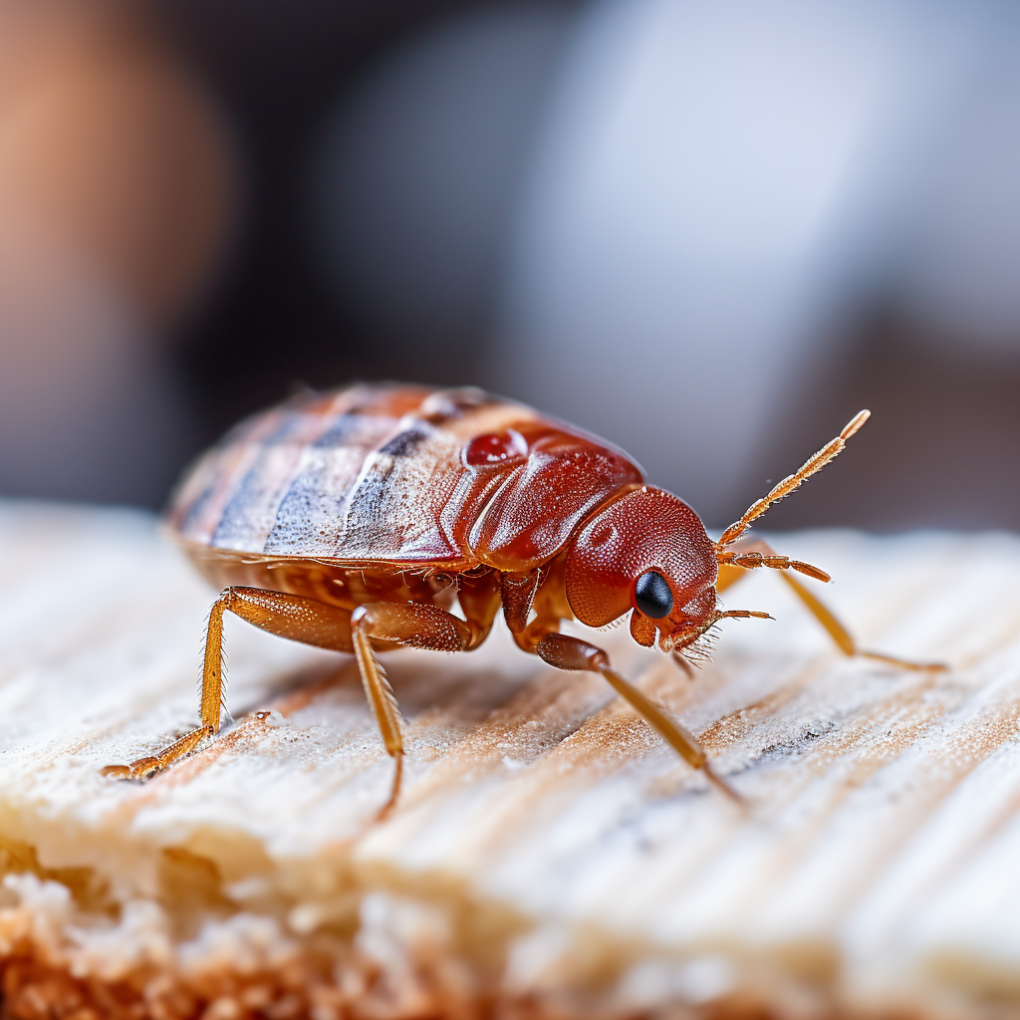Kings Pest Control Expert Cincinnati: Efficient Pest Management
Kings Pest Control Expert Cincinnati: Efficient Pest Management
Blog Article
Kinds Of Bug Control: Which Approach Is Right for Your Invasion?
When confronted with a bug infestation, the option of an appropriate method for parasite control is crucial in properly managing the scenario. From chemical therapies to biological services, there exists a variety of approaches that can be utilized to address various kinds of insects. Each approach comes with its own collection of factors to consider and benefits, making the decision-making process a nuanced one. Comprehending the nuances of each approach and assessing their compatibility with the particular parasite invasion handy is vital for attaining long-term success in insect monitoring. By exploring the numerous types of parasite control techniques readily available, people can make enlightened choices customized to their unique situations, ensuring a more effective and lasting end result in bug elimination.
Chemical Bug Control
Chemical parasite control entails the usage of artificial or normally obtained chemicals to manage and eradicate pest populaces successfully. This method is frequently used in farming, forestry, and residential setups to deal with a variety of bugs, including pests, weeds, and rodents. Using chemical pesticides can provide fast and targeted options to pest infestations, making it a prominent option for many individuals and businesses.
One of the key benefits of chemical parasite control is its capacity to quickly remove pests, lowering the risk of damages to plants, residential property, and human wellness. By utilizing particular chemicals that target specific bugs, this approach can efficiently control problems while lessening harm to advantageous organisms and the setting when used correctly.
Nevertheless, making use of chemical pest control additionally elevates worries concerning potential unfavorable effects on non-target types, water resources, and human health and wellness. It is essential to follow safety and security guidelines, use chemicals sensibly, and take into consideration alternative bug control techniques to lessen these threats and guarantee lasting pest management practices.
Organic Pest Control
Biological parasite control, additionally referred to as biocontrol, utilizes living microorganisms to handle and decrease pest populations naturally. This technique uses the power of nature to manage pests without the need for artificial chemicals. Biocontrol can entail the introduction of all-natural adversaries of the parasite varieties, such as predators, pathogens, or bloodsuckers, to reduce pest populations. By using the insect's all-natural killers or virus, organic bug control provides a lasting and environmentally friendly option to pest monitoring.

Mechanical Pest Control
Making use of hand-operated and physical techniques to manage bug populaces, mechanical insect control offers an alternative technique that does not depend on the use of living organisms or synthetic chemicals. This method involves the use of obstacles, traps, or various other devices to physically hinder or remove insects. By blocking insect access factors or establishing traps to catch them, mechanical parasite control can efficiently decrease invasions without presenting chemicals into the setting.
One common example of mechanical parasite control is making use of mesh displays on doors and windows to avoid insects from getting in buildings. This simple yet efficient method acts as a physical obstacle, keeping pests out while permitting for correct air flow. Additionally, tools like mousetraps, fly swatters, and ultrasonic repellents drop under the mechanical insect control classification.
While mechanical bug control techniques can be labor-intensive and require regular surveillance and upkeep, they supply a ecologically friendly and sustainable remedy for taking care of bug infestations. By integrating various mechanical methods, homeowner can create a detailed insect control strategy that minimizes reliance on chemical pesticides.
Physical Insect Control

Some common physical bug control techniques consist of using barriers such as displays or internet to avoid parasite entry, catches to catch and remove bugs, and hand-picking to literally get rid of parasites from plants or structures. In addition, methods like warm therapies can be used to control bugs like bed insects by elevating the temperature to levels that are dangerous to the pests.
Physical bug control is specifically useful in incorporated insect management (IPM) techniques, where several bug control techniques are combined for efficient pest administration while lessening the use of chemicals. By using physical parasite control methods, people can effectively deal with bug problems with very little ecological impact.
Integrated Bug Administration
When carrying out physical insect control approaches as part of pest administration techniques, Integrated Bug Management (IPM) becomes a detailed approach that leverages different techniques to successfully manage pest populaces. IPM concentrates on long-term avoidance of pests through a mix of biological, social, physical, and chemical tools tailored to particular pest problems. By integrating numerous control methods, IPM aims to lessen the threats related to pests while likewise lowering dependence on chemical solutions.
One secret element of IPM is the focus on surveillance and analyzing pest populations to identify the most proper control techniques. This aggressive strategy enables early treatment and targeted strategies, bring about extra efficient bug monitoring. Furthermore, IPM advertises eco-friendly techniques by focusing on non-chemical control methods and just utilizing chemicals as a last option.
Verdict

By utilizing the parasite's natural predators or microorganisms, organic parasite control provides a eco pleasant and lasting service to pest administration. - Kings pest control Cincinnati Ohio
Using hand-operated and physical approaches to take care of parasite populaces, mechanical parasite control supplies an alternate technique that does not depend on the usage of living organisms or synthetic chemicals.An efficient method to handling insect populations without relying on chemical or biological approaches entails the usage of physical bug control methods.When carrying out physical bug control techniques as part of pest monitoring approaches, Integrated Parasite Administration (IPM) emerges as an extensive approach that leverages various strategies to properly manage pest populaces. Chemical parasite control involves the usage of pesticides, biological bug control makes use of natural predators, mechanical parasite control includes physical obstacles, physical bug control consists of capturing or eliminating insects, and incorporated insect administration integrates numerous methods for a holistic strategy to pest control.
Report this page